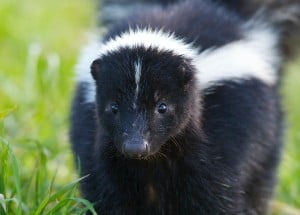Skunks are very cute on the outside, but they can cause significant damage to your garden or home. They lead an active lifestyle only at night, so you can identify their presence in your territory by skunk feces. My advice will help you find out what skunk poop looks like and how to get rid of feces safely.
After all, skunk poop is potentially dangerous for humans and animals. It may contain bacteria, larvae, rabies, and various infections to which the pests are vectors.
How to Identify Skunk Poops
Skunk scat appears in your garden, basement, or attic at night, so it is difficult to identify the feces during the daytime. On the outside, they are very similar to cats’ poo. But do not try to clean them up quickly with a normal bag without gloves and a protective mask. It can be skunk droppings!
Skunk droppings can contain various foodstuffs and remnants of berries, seeds, and plants. These are omnivorous mammals that hunt rats (can be vectors of infection!), eat berries and plants. They are not averse to eating even bats.
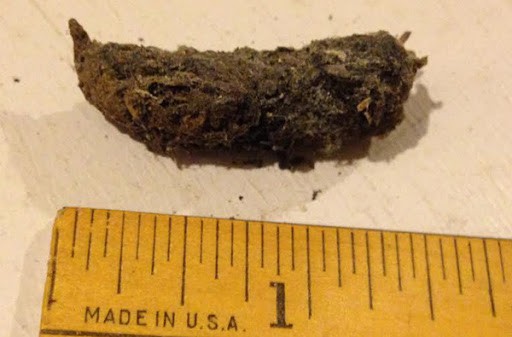
Take a look at the skunk scat images. The particle is about 1/2 inch in diameter and 1-2 inches long. Unlike the feces of cats, skunks poop is with a variety of food remains. Therefore, the color of poop will never be homogeneous, as will the structure.
Skunk feces are often crumbly, mushy, or hard. Some of the remains may be light brown, while others are dark or even black. This is the main difference from the feces of cats. Pets poop homogeneous poop, as their diet is balanced and stable.
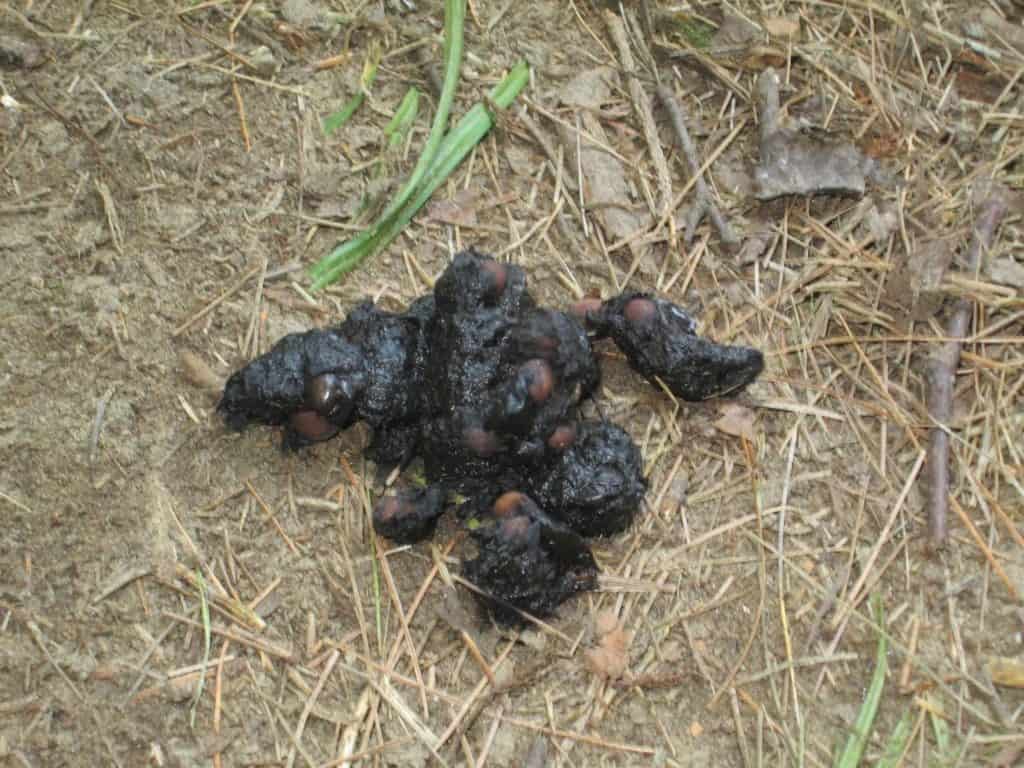
Skunk scat dangers
You need accurate skunk scat identification to apply precautions when cleaning up. Skunks are omnivores, so they are often considered as vectors of infection, eating rats, bats, larvae, and worms.
Direct contact or inhalation of the smell of poop can lead to infection of humans with salmonella, leptospirosis, E. coli, and various bacteria. Some skunk poop pictures may even show small larvae, often found in the animals’ feces. It is disgusting, so you must take precautions.
Skunk poop feces are also dangerous for pets, especially cats and dogs. They can infect the larvae, after which they will have to be treated for a long time.
In North America, there are often recorded cases of infection of horses with EPM from skunk feces. This disease has a strong effect on horses’ nervous systems and can destroy their bodies within a few weeks.

How to clean skunk feces
You need to clear the area of skunk poop immediately if you have found feces and identified them.
Step 1 Use the protective gear
Use a protective mask or respirator with rubber gloves for this. Do not touch feces under any circumstances.
Step 2: Eliminate the poop properly
Put the feces in a tightly closed bag and throw them in the trash can. Ensure that dogs or other animals do not have access to the dumpster and cannot get the bag out of there.
Step 3: Get rid of the gear
Gloves and other equipment you have used to clean the feces in the bag should also be discarded. The place where the skunk poop was may have been contaminated.
Step 4: Disinfect the area
You should use disinfectants to treat the ground’s surface within a radius of 2 meters near the poop. You can use chlorine, alcohol (above 60%), bleaching agents, and strong detergents.
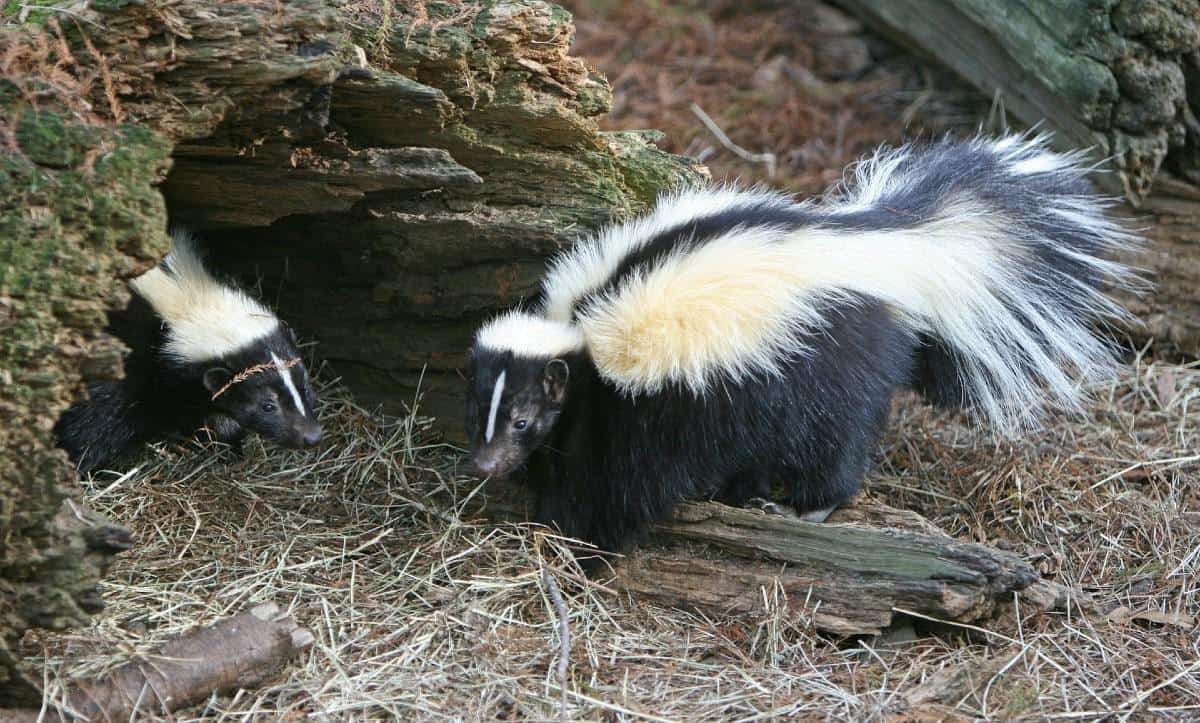
How to identify skunk poop infections
You can recognize the infestation of your territory with skunks by several signs:
- Remains of fruit or other food appear in the garden;
- There are pits dug in the garden;
- The lower facade of the building has been bitten or contains traces of destruction;
- An unpleasant smell of ammonia, typical for skunks.
Note that skunks are mostly active at night. During the day, you are unlikely to notice them in your garden. It is best to install video cameras with the night mode. This way, you will be able to notice the presence of skunks and identify them.
[su_note note_color=”#e5e2d4″]Related post: Recommended skunk repellents [/su_note]
FAQ
How long is skunk poop still dangerous to humans?
Skunk fecal matter can be dangerous for a person for a long time. Even hardened feces may contain larvae. So it is worth cleaning up the poop as soon as you find it.
Is skunk poop dangerous for dogs?
Yes, skunk feces are primarily dangerous for dogs and other pets. Dogs often consume feces, so it should not be allowed to get into the dog’s esophagus. If an infection occurs, the dog will need veterinary care and treatment.
Why would skunk poop be in my yard?
Skunks are omnivores, so they often climb into the yards of houses, choppers to eat berries, the fruits on trees, as well as food for pets.
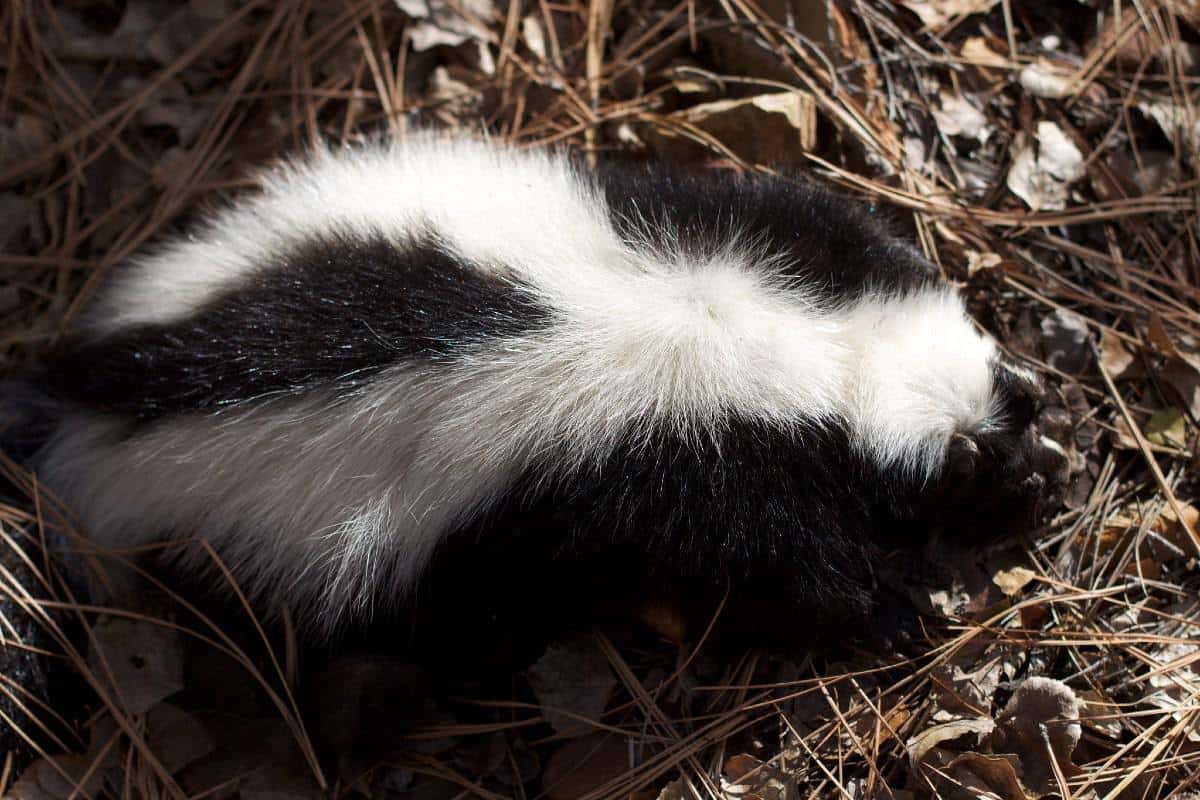
Skunk Feces Identification: Easy with Expert Tips
You need to be able to identify the feces that appear in your garden or non-residential areas of your home. These could be skunk poops that sneaked into your home at night.
They eat everything and are often vectors of diseases. You should not touch these poops and clean them up without personal protective equipment. Hopingly, this article will help you become a pro in skunk poop identification and get rid of it correctly.
Tell me, have you encountered any suspicious poop near your home? Have you felt a particularly unpleasant smell? Tell us about your experience with skunk poop in the garden.
References:
- Animal Transmitted Diseases (Washington State Department of Health):
https://www.doh.wa.gov/YouandYourFamily/IllnessandDisease/AnimalTransmittedDiseases - Diseases from raccoons and other wildlife (King Country):
https://www.kingcounty.gov/depts/health/communicable-diseases/zoonotic/facts-resources/diseases-by-animal/raccoons.aspx

